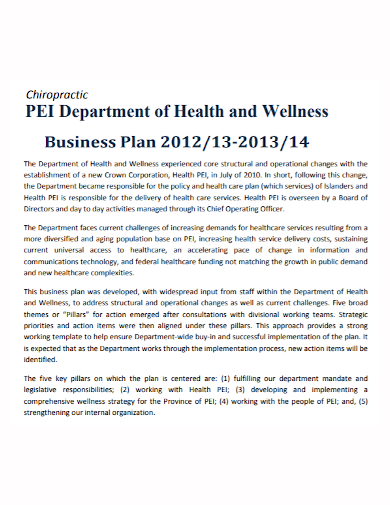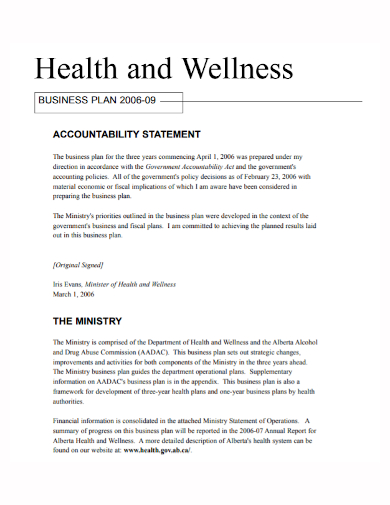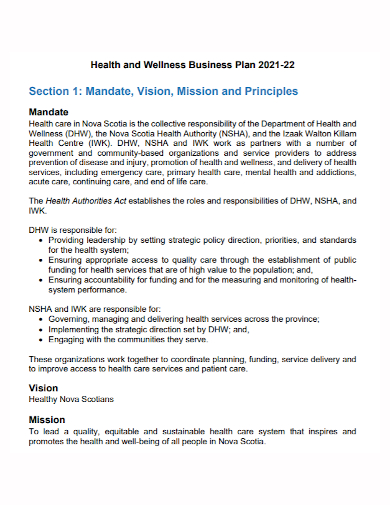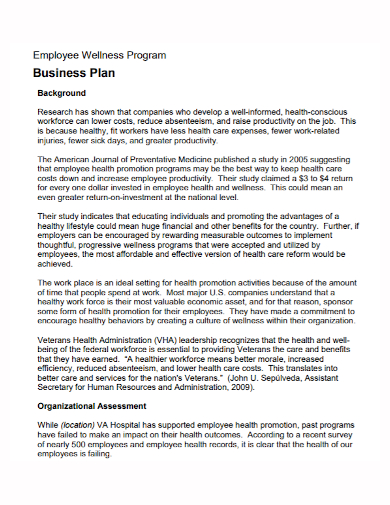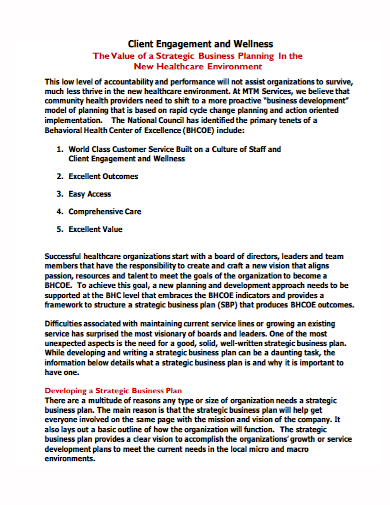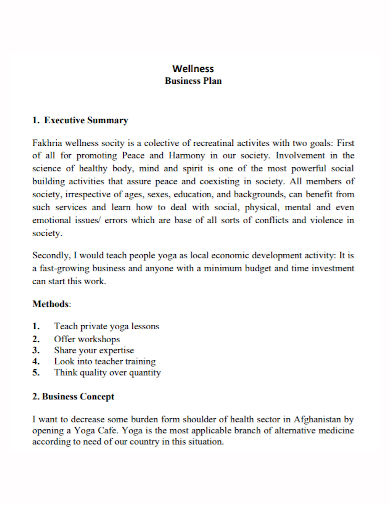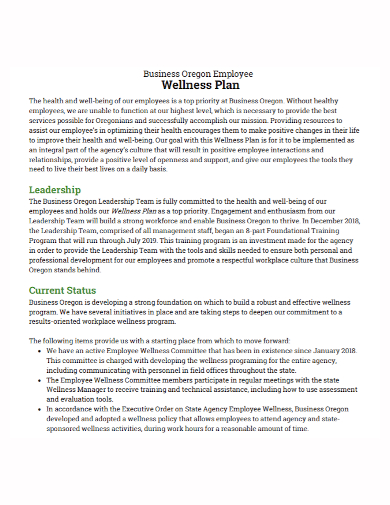Organizational challenges have always existed in the business world, especially when attempting to turn a profit. Maintaining complete control over every aspect of one’s business on one’s own and ensuring that everything is taken into account is a business owner’s nightmare. As a result, for entrepreneurs and business owners alike, the ability to create a comprehensive business plan can be life-changing. This is true regardless of the business’s size, scale, or nature. Furthermore, a layout keeps everyone involved with the business, particularly branch managers and operations supervisors, up to date on everything the company may encounter while conducting business. Good business practice dictates that you should always plan the scope of your venture ahead of time, as this will save your management time and resources on ventures that may fail soon after they are launched.
A business plan is one of the most important documents in ensuring a company’s success and return on investment. It is essentially a set of guidelines or actions that they can follow in order to achieve any goal that they have set for themselves. A business venture that is not supported by a business plan is generally regarded as a bad idea because it implies that you are going into this venture with no prior plan or contingency in place. To put it bluntly, you’re setting yourself up for failure. This is especially true if you are trying to establish a business in an industry with a lot of competition and potential roadblocks to your success.
A well-written and well-drafted business plan can provide a number of other benefits to your organization in addition to ensuring that your venture stands the test of time. Review the business plan samples provided below to get ready for the writing process. This will assist you in becoming more acquainted with the appearance and functionality of the document. Once you’ve familiarized yourself with the document, you’re welcome to use these samples as guides or even as templates when creating your own business plan.
10+ Wellness Business Plan Samples
1. Wellness Business Plan Template

2. Chiropractic Health and Wellness Business Plan
3. Health and Wellness Business Plan
4. Wellness Business Plan
5. Employee Wellness Program Business Plan
6. Wellness Center Business Plan
7. Client Wellness Strategic Business Plan
8. Community Wellness Strategic Business Plan
9. Wellness Business Plan Summary
10. Wellness Promotion Business Plan
11. Leadership Wellness Business Plan
What Is a Wellness Business Plan?
If you’re unfamiliar with the concept of a business plan, you may be wondering what it entails. It is a written document that describes how a company defines its goals and the steps that management is willing to take to achieve those goals. A business plan can serve as a road map for the entire management team to follow, with parameters set by the organization’s various departments, such as marketing, finance, and operational planning. Entrepreneurs frequently find business plans extremely useful because they can be used to secure potential investments and partnerships even before the company reaches full operational capacity. You can use it to secure additional funds and resources for your company’s development during the early stages. Although a business plan is extremely useful for new businesses and corporations, it is generally recommended that every company, new or established, be capable of developing its own business plan. Why? Because it will provide management with a document that they can update and review on a regular basis to determine whether or not they are progressing toward the goals that they have set for themselves, as well as whether or not the circumstances under which they have been working have changed. A well-written business plan clearly outlines the project’s projected costs and expected outcomes, as well as the potential pitfalls that must be considered before any decision by management can be made. Despite the fact that business plans are widely used in the business and corporate sectors, it is uncommon to find exact replicas of one another. This is due to the fact that each organization has its own distinct approach to dealing with and resolving internal and external issues. A well-written and well-drafted business plan can provide a number of other benefits to your organization in addition to ensuring that your venture stands the test of time. Review the business plan samples provided below to get ready for the writing process. This will assist you in becoming more acquainted with the appearance and functionality of the document. Once you’ve familiarized yourself with the document, you’re welcome to use these samples as guides or even as templates when creating your own business plan.
How to Write a Wellness Business Plan
It is important to note that the length of the document is heavily influenced by the nature and scope of the business on which the plan is focused. Although this is not always the case, it is common for all of the information to fit on 15 to 20 pages. Despite the fact that no two business plans are identical, the vast majority of them contain nearly all of the same elements. These components will be listed and discussed further down the page.
- Executive summary
Begin with an introductory paragraph that describes the company’s mission, vision, values, company leadership, employees, operations, and general location. In this section, known as the executive summary, simply stating who the company is and what it stands for should suffice. - Products and services
Following that, a description of the company’s products and services should be included in the document. This includes, among other things, pricing, product lifespan, service duration, customer benefits, and other factors like manufacturing and production processes, patents, and proprietary technology. - Analysis of the market
Before beginning any marketing campaign, a company should have a clear understanding of who their customers are and what their demographics are. As a business owner, you should be able to identify the needs of your customer base and determine how your company can effectively meet those needs. Correct market analysis will also provide you with an understanding of the competition, both locally and globally, as well as strategies for remaining competitive. - Marketing strategy
Following a thorough market analysis, it is time to decide on the strategies that will be used to attract and retain customers. Introduce your company’s approach by emphasizing a well-organized distribution channel that includes marketing and advertising campaigns as well as the media channels through which these campaigns will be distributed. - Budgeting
The final sections of the business plan should be devoted to the company’s financials and budget. A well-thought-out financial plan will also entice investors, particularly those looking to invest in companies that can provide a high rate of return on their money. Financial statements, balance sheets, and other financial documents are all essential to have on hand.
FAQs
What are the five elements of a business plan?
- Situation analysis
- Market definition
- Product and services position
- Objective setting
- Strategies
What are the four types of business plans?
Business plans can be divided roughly into 4 distinct types;
- Very short plans
- Presentation plans
- Working plans
- What-if plans
Who needs the business plan?
A business plan is one of many tools you can use when applying for a loan, and it is one of the most important. The vast majority of financial institutions require it, and even those that do not require it generally expect it to be provided.
When creating a business plan, keep in mind that it is a living document that is constantly changing. As a result, the document should be adaptable enough to allow for changes and updates as needed. Despite the fact that all of the elements have been written down, the writing process is not finished. The writing process will continue as long as the business plan is still in use and the company is still in operation.
Related Posts
FREE 9+ 30-Day Marketing Plan Samples in PDF | MS Word | Apple Pages | Google Docs
FREE 3+ Sales Team Action Plan Samples in PDF | MS Word | Apple Pages | Google Docs
Marketing Plan For Small Business Samples
FREE 7+ Fashion Business Plan Samples in PDF
FREE 10+ Sprint Planning Samples In MS Word | Google Docs | PDF
FREE 10+ Wedding Planning Samples in MS Word | Apple Pages | Powerpoint | PDF
FREE 9+ Monthly Study Planner Samples in PSD | Illustrator | InDesign | PDF
FREE 9+ Sample Curriculum Planning Templates in PDF | MS Word
FREE 10+ Teacher Development Plan Samples in MS Word | Google Docs | Apple Pages | PDF
FREE 10+ Basketball Practice Plan Samples in PDF
FREE 12+ School Business Plan Samples in PDF | MS Word | Apple Pages | Google Docs
FREE 7+ Client Strategic Plan Samples in PDF | MS Word
FREE 11+ Trucking Business Plan Templates in PDF | MS Word | Google Docs | Pages
FREE 7+ Small Hotel Business Plan Samples PDF | MS Word | Apple Pages | Google Docs
FREE 14+ Bakery Business Plans in MS Word | PDF | Google Docs | Pages

